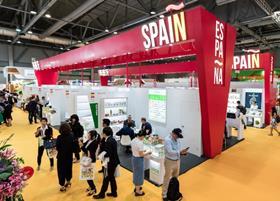
Spain experienced a slowdown in the growth of fruit and vegetable exports in 2017, principally due to the supply shortages caused by last winter’s inclement weather, according to the full-year results for the sector, which were published by Fepex on Wednesday.
Total exports were virtually unchanged on 2016, rising 0.5 per cent in volume and 1 per cent in value to 12.6m tonnes and €12.704bn respectively.
“The data for 2017 reflects the positive evolution of the sector, but the initial growth forecasts were not met, mainly due to the decline in exports in November and December,” Fepex said. “It also reflects the slowdown in the growth rate in relation to recent years; in 2016 exports grew in value by 5 per cent and in 2015 by 13 per cent.”
Raspberries and blueberries were among the biggest climbers in fruit, with the former growing 21 per cent in volume to 45,809 tonnes and 12.3 per cent in value to €346m, and the latter showing growth of 27.4 per cent in volume to 46,510 and 5.5 per cent in value to €274.7m.
Other products that registered strong export growth were pears (+29.4 per cent in volume and +21.5 per cent in value), avocados (+16.7 per cent in volume and +23.4 per cent in value).
However, apple shipments fell by 3.6 per cent in volume and 14.5 per cent in value to 123,086 tonnes and €84.8m.
In vegetables, tomatoes, peppers, cucumbers and cabbage all fell in volume but increased in value, reflecting last winter’s supply shortage.
The European Union remained by far the largest market, accounting for 93 per cent of exports, but last year saw a rise in shipments to Canada and Saudi Arabia.
Meanwhile, fruit and vegetable imports continued the upward trend seen over recent years, rising 6 per cent in volume and 8.6 per cent in value to 3m tonnes and €2.526bn.
Fepex said it was “concerned about the steady progression of imports in products and periods fully coinciding with Spanish production, such as tomatoes and apples”, especially since imports coincided with a fall in domestic consumption.



